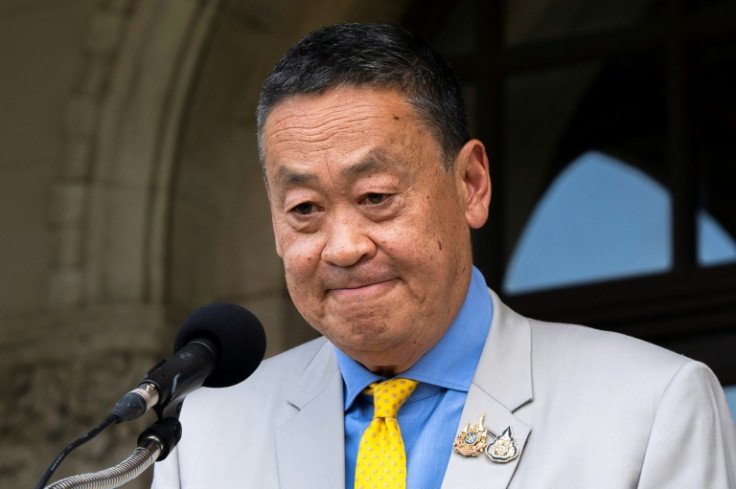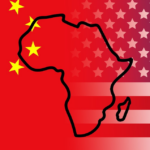The political unrest in Thailand is causing difficulties in its relationship with the United States, especially as the country is rapidly aligning itself with China in various areas. The Pheu Thai Party, which joined forces with politicians connected to the military, has experienced instability due to the abrupt ouster of Prime Minister Srettha Thavisin by Thailand’s highest court. Paetongtarn Shinawatra, the person who took over after him, is unlikely to question the existing state of affairs. Instead, she prioritizes economic matters over political changes.
Thavisin, in his short time in office, aimed to strengthen the relationship with China, recognizing it as a more suitable ally for economic revival, particularly in the fields of tourism and vital sectors like as automobile production. Thailand has embraced Chinese investments, including the establishment of BYD’s electric vehicle manufacturing, in order to expand its industrial sector. In addition, there has been an expansion of military collaboration with China, demonstrated by the acquisition of a Chinese-manufactured submarine, despite encountering technical challenges.
The Thai military’s firm grip on the government, which extends to its sway over the senate and crucial regulatory institutions, restricts the possibility of altering the current pro-China course. The disintegration of the Move Forward Party and the continuing allegations against former leader Thaksin Shinawatra serve to emphasize the autocratic tendencies that complicate Thailand’s political terrain.
Notwithstanding these difficulties, Thailand continues to acknowledge the significance of its alliance with the United States, particularly in terms of the economy. Nevertheless, the increasing authoritarianism in Thailand poses challenges to the military collaboration between Thailand and the United States. In order to offset China’s influence, the United States might bolster economic connections, amplify investments, and utilize programs such as the Indo-Pacific Partnership for Prosperity to augment its presence in the region. By doing so, the United States might showcase the advantages of strengthening connections with Washington and the free international system, regardless of Thailand’s present political intricacies.
Read more below.
How Thailand’s political turmoil complicates ties with the US
Rather than seeking to upset the status quo and implement major reforms to the constitution, particularly with regard to the lèse-majesté law – which carries a penalty of up to 15 years in jail for anyone who insults Thailand’s monarchy – Thavisin focused his agenda on economics. This is with good cause, as Thailand’s per capita income levels have not rebounded above their 2019 levels.
Thailand has sought to move closer to China in multiple domains – in addition to courting Chinese investment and tourism, Bangkok has also increased military ties between the two countries.
Indicative of its intentions is a deal to purchase the Chinese-built S26T Yuan-class submarine. The deal had run into hurdles, including that the submarine no longer had a German-made diesel engine. Eventually, Thailand accepted the Chinese-made CHD620 diesel engine.
The July election of 200 new senators solidified the military’s grip over the senate. This election was not without its controversy, however; the commission received thousands of complaints, including accusations that candidates misrepresented their qualifications.
The big winner of these elections was the conservative party, the Bhumjaithai Party. Although not directly linked to the military, it maintains a similar ideological stance and aligns itself more closely with the royalists.
Although the senate cannot make laws on its own, its approval is required for any legislation to become law. Moreover, it selects the members of independent regulatory bodies, most notably the Election Commission and the National Anti-Corruption Commission. Senate votes are required to amend the constitution.

Despite these realities, Thailand still recognises the US as a crucial partner. According to an Asia Foundation survey, 83 per cent of Thai respondents still view the US as important for Thailand’s future. Of particular note, 75 per cent put economic links in their top three areas they saw as beneficial to the Thai-US relationship – the highest of all the options.
The US should also increase investment in the country. One way would be through the newly announced coalition between investment firms and the Indo-Pacific Partnership for Prosperity. This public-private-partnership intends to invest US$25 billion in infrastructure in the region, providing an opportunity for a bigger US economic footprint.
Although Thailand continues to move closer to China, strong economic engagement from Washington can show Bangkok the clear benefits of closer relations with the US and the liberal international order.
By: Nathaniel Schochet – the programme administrator for the Indo-Pacific Security Programme at the Center for a New American Security (CNAS)
Source: South China Morning Post







